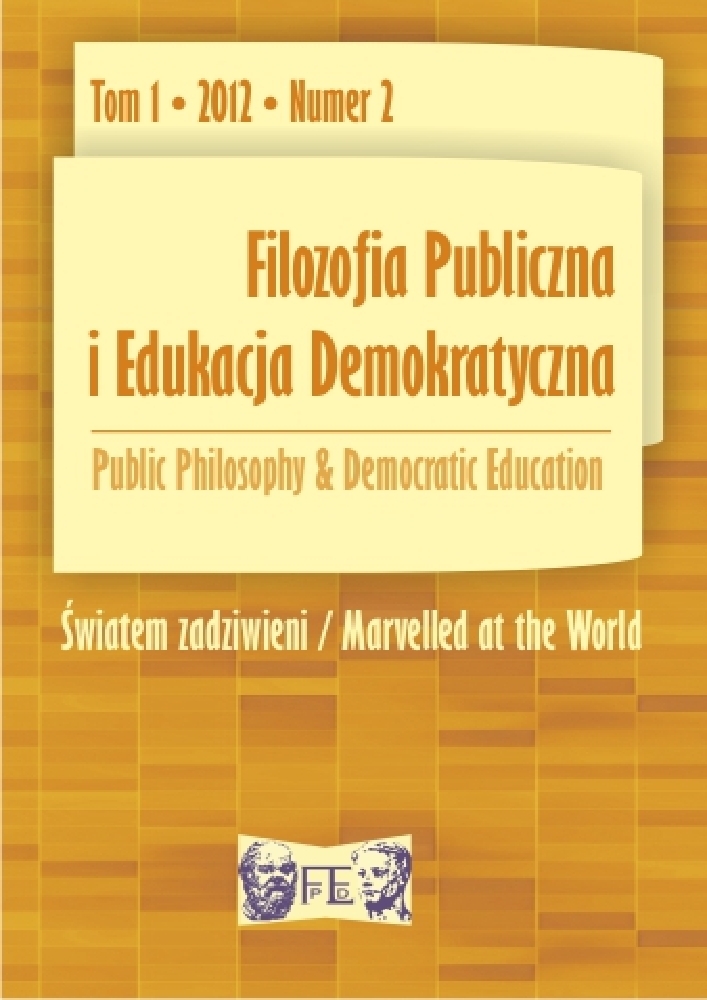Abstrakt
The article concerns some of the most important elements of I. Kant’s epistemology and its connections with earlier epistemological ideas, namely rationalism and empiricism. The history of dispute between rationalism (Descartes, Leibniz) and empiricism (Locke, Berkeley, Hume) is hereby shortly presented while Kant’s own philosophical achievements are suggested to be both alternative and synthesis of these. The main core of this paper is summary of basis of Kant’s Critique of Pure Reason; some most important categories are described: apriorism, synthetic and analytical judgements, knowledge a priori and a posteriori, main ideas of transcendental esthetics (two forms of pure intuition: time and space), main ideas of transcendental logic (forms of judgement and twelve categories). Also the meaning of Kant’s „copernican revolution” is presented as a turning point for classical German philosophy as well as for whole modern epistemology.
Bibliografia
Höffe O., Immanuel Kant, przeł. A. Kaniowski, Wydawnictwo Naukowe PWN, Warszawa 2003.
Hume D., Badania dotyczące rozumu ludzkiego, przeł. D. Misztal, T. Sieczkowski, Wyd. Zielona Sowa, Kraków 2005.
Kant I., Krytyka czystego rozumu, przeł. R. Ingarden, Wyd. Antyk, Kęty 2001.
Kartezjusz, Rozprawa o metodzie, przeł. T. Żeleński, PIW, Warszawa 1980.
Kroński T., Kant, Wiedza Powszechna, Warszawa 1966.
Locke J., Rozważania dotyczące rozumu ludzkiego, przeł. B. Gawecki, PWN, Warszawa 1955.
Pascal B., Myśli, przeł. T. Żeleński, Instytut Wydawniczy PAX, Warszawa 1997.
Siemek M., Idea transcendentalizmu u Fichtego i Kanta, PWN, Warszawa 1977.
Licencja
Prawa autorskie (c) Autorzy zachowują prawa autorskie i prawa do publikacji swoich artykułów w tym czasopiśmie, przyznając czasopismu prawo do ich rozpowszechniania na warunkach CC BY-NC-ND 4.0
